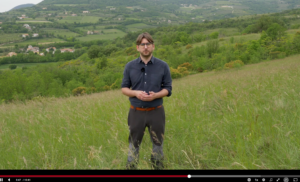A first! The LIFEedu Virtual Summer School on Natura 2000 management
The LIFE e-Natura 2000.edu project is always innovative. This June participants could join the Virtual Summer School. Find out what they learned here:
From 7 to 17 June 2021, the “Natura 2000 in Practice” Virtual Summer School was held by LIFEedu project partner, the Department Land, Environment, Agriculture and Forestry (TESAF) of the University of Padova, for managers of Natura 2000 sites. As a part of the LIFE e-Natura2000.edu project, it capitalised on the project partners’ experience gains, who have collaborated throughout the project. Originally planned as a ‘live’ event, the Virtual Summer School was organised following more than one year of postponements due to the coronavirus pandemic.
The School aimed to disseminate in-depth knowledge on innovative aspects related to the management of Natura 2000 sites and develop practical, technical skills among participants about the ecological and planning tools required for appropriate management of these Protected Areas.
The School was designed to train public and private staff in the management and planning of Natura 2000 sites and apply innovative tools to adhere to the requirements of the Habitats Directive in Natura 2000 sites. The main topics included: understanding conservation status, conservation degree and favourable reference values of habitat types and species; examining pressures and threats, article 17 reporting requirements, site conservation objectives and measures; discussing restoration and monitoring actions, field surveys and remote sensing; practical methods to facilitate participatory processes, community outreach, communication and collaboration in Natura 2000 projects.
A number of different tools were used during the Virtual Summer School. All materials (registrations, videos, documents, weblinks, forum exchanges etc.) were made available via a purpose-built Moodle. Most of the sessions were conducted on zoom using MURAL, Zoom Pool and Mentimeter to stimulate participation and sharing of ideas. The Moodle page will continue to be available to participants to continuing sharing information and networking.

Thomas Campagnaro of TESAF in one of the virtual field trips
Virtual field visits were held with specially created videos to relate online maps on monitoring and management of habitat types and habitat of species in two Natura 2000 sites (“Colli Euganei – Monte Lozzo – Monte Ricco” IT3260017 and “Grave e Zone umide della Brenta” IT3260018). The sessions also presented experiences from other LIFE projects, namely: LIFE RedBosques project (LIFE15 GIE/ES/000809), LIFE “Brenta 2030” (LIFE18 NAT/IT/000756), LIFE PRIMED (LIFE17NAT/GR/000511).
The final online session was used to sum up the main outcomes of the Virtual Summer School and understand its impacts using an interactive evaluation for participants. This revealed general agreement about the “diverse topics and good lecturers and backup material”. Additionally, someone else noted that
The Summer School had been “a perfect undertaking to integrate the community of folks involved in N2K all across the continent”.
The School also generated a proposal for collaboration among participants regarding the use of digital learning techniques to support data collection and analysis with the aim of helping monitoring and appropriate assessments.
All in all, the Virtual Summer School highlighted the importance and interest of deepening understanding about methods to improve knowledge and awareness of Natura 2000 for site and LIFE project managers.
